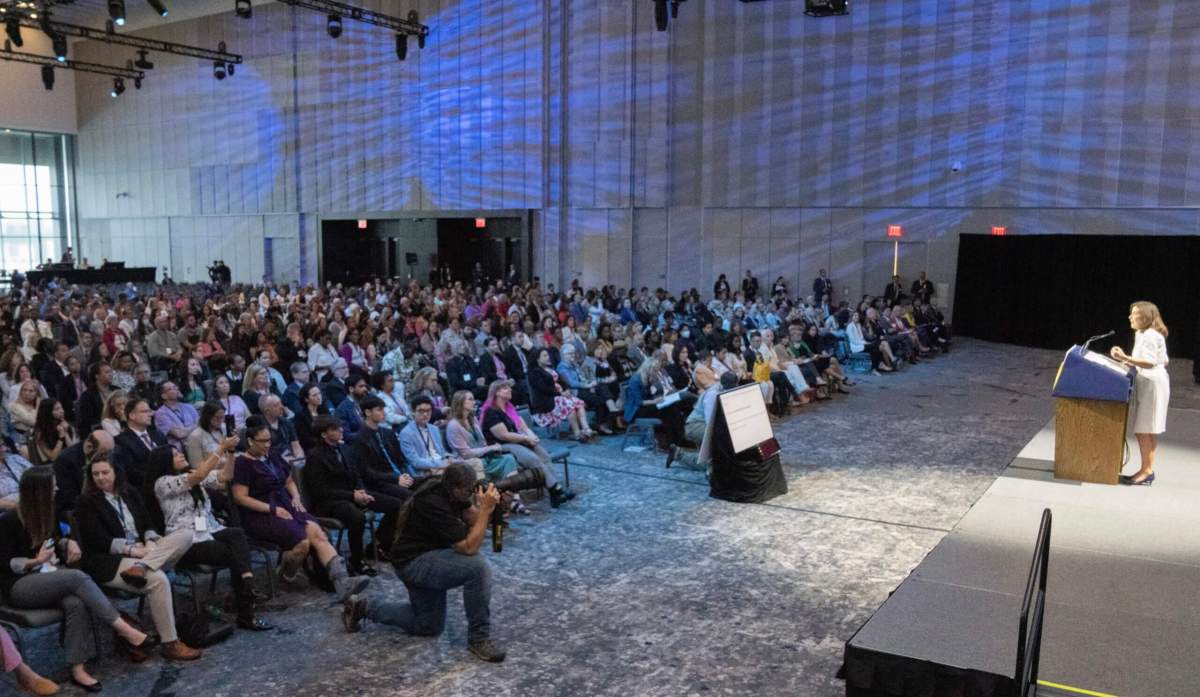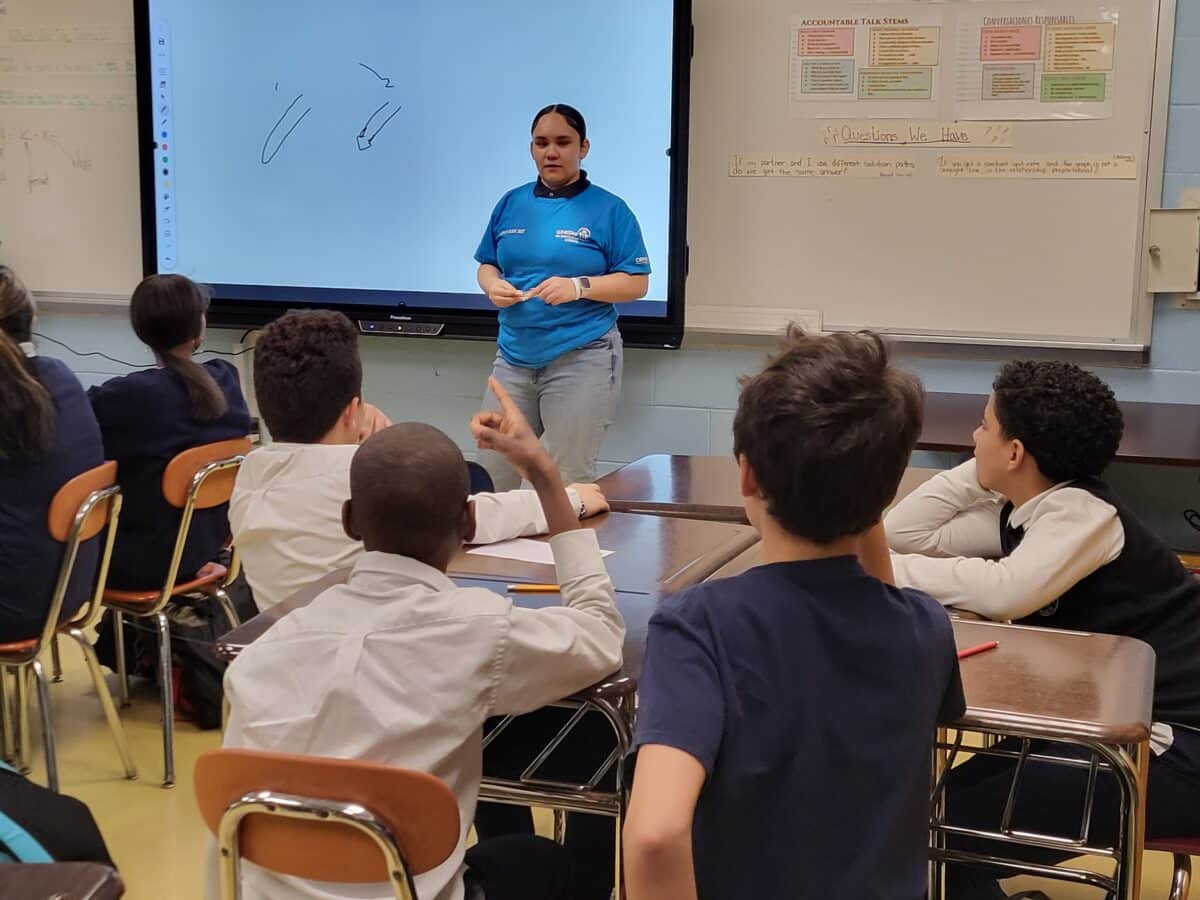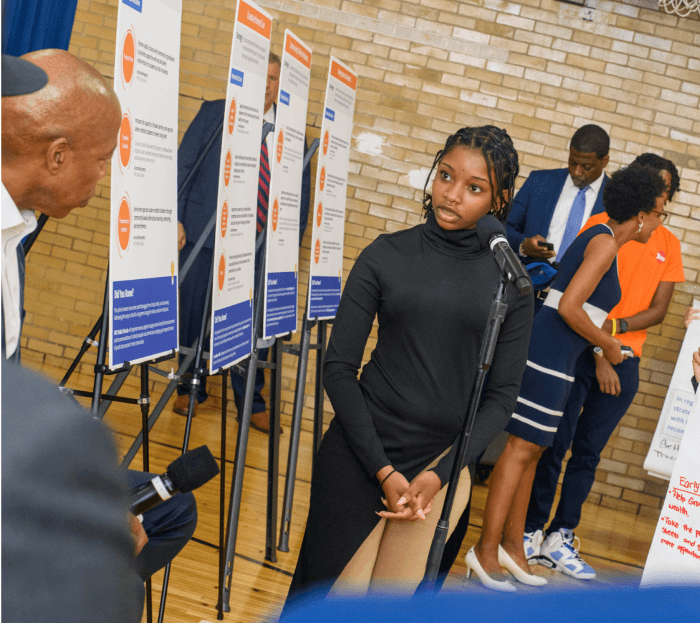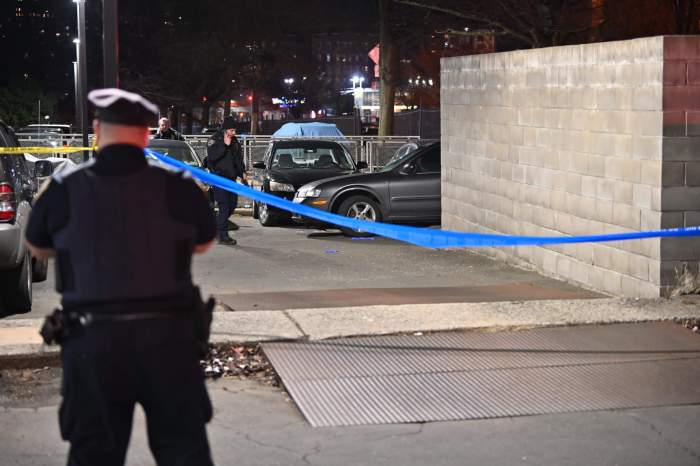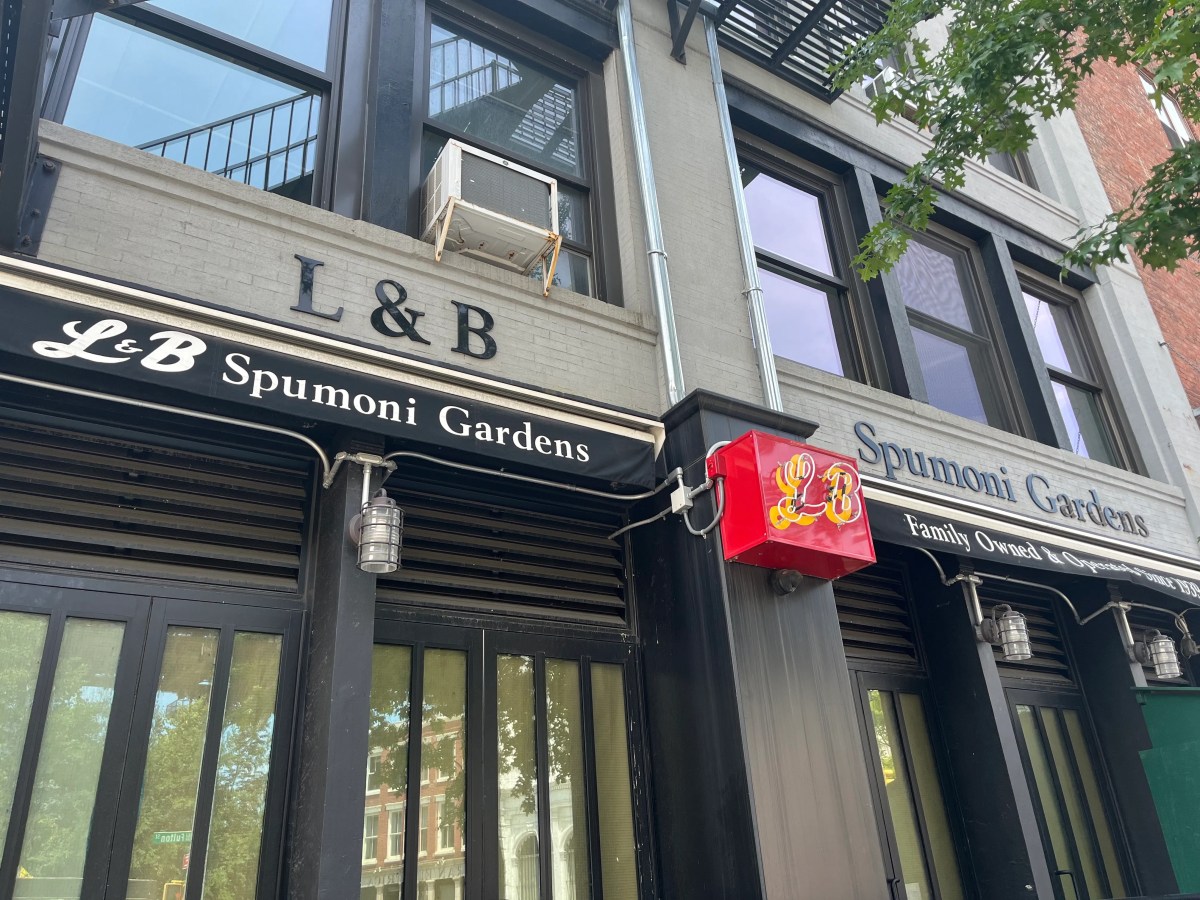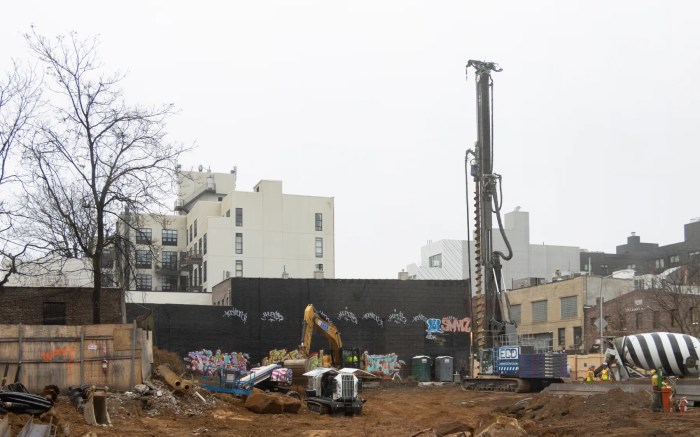Around 1,000 people attended New York’s first-ever youth mental health summit held at the Javits Center in Manhattan on Thursday, June 15.
The summit, originally scheduled for May to coincide with Mental Health Awareness Month, brought various stakeholders together to explore and advise on future policy initiatives that can help tackle the youth mental health crisis.
Governor Kathy Hochul, who spoke at the event, described the current state of youth mental health as a “crisis like never seen before in the history of this country.” She pointed to past evils of binge drinking, drunk driving and smoking impacting youth in the past, and how the landscape has now become more ridden with deeply-rooted health issues. Poor mental health and suicide are especially disproportionately impacting girls and young women, LGBTQ+ youth, and Black youth.
“Today, it’s so much deeper: It’s anxiety. It’s depression. And it’s suicide,” said Hochul at the summit. “I believe there are two culprits: one is what we did not have control over — a global pandemic. But the other one is the influence of social media.”
Hochul clarified that these two triggers were reported by many youth who shared their stories at listening sessions that Hochul arranged before the summit. Gun violence and mass shootings, particularly those at schools, were other issues that young people raised at the sessions.
“We teach kids how to run and hide in between math and social studies,” Hochul said. “We acknowledge that this is having an effect on them as well.”
The U.S. Centers for Disease Control (CDC) released new data on Thursday that showed suicide rates among youth and young adults aged 10 to 24 years old had reached a 20-year-high in 2021.
The CDC also found alarming poor mental health reports, particularly from teenage girls — between 2011 and 2021 in its Youth Risk Behavior Survey. 57% of teenage girls surveyed in 2021 reported that they experienced persistent feelings of sadness or hopelessness — a nearly 60% increase compared to 2011.
The summit gathered subject matter experts from the mental health, education, technology, and law enforcement fields to lead panel discussions. Each panel allowed time for participants —educators, policymakers, advocates, parents, and youth — to come together to discuss solutions and ideas to address the crisis impacting young people.
Panelists represented various institutions including the American Psychological Association, Google, Columbia University, New York University, American Academy of Pediatrics, The Jed Foundation, and the Mental Health Association of New York State. Panel sessions dived into social media, student and educator mental health, families and communities, and social and emotional learning in schools.
“I’m so proud to be gathering people who deeply care about the plight of our young people,” Hochul said at the summit. “I’m bringing together the brightest minds in the world of mental health.”
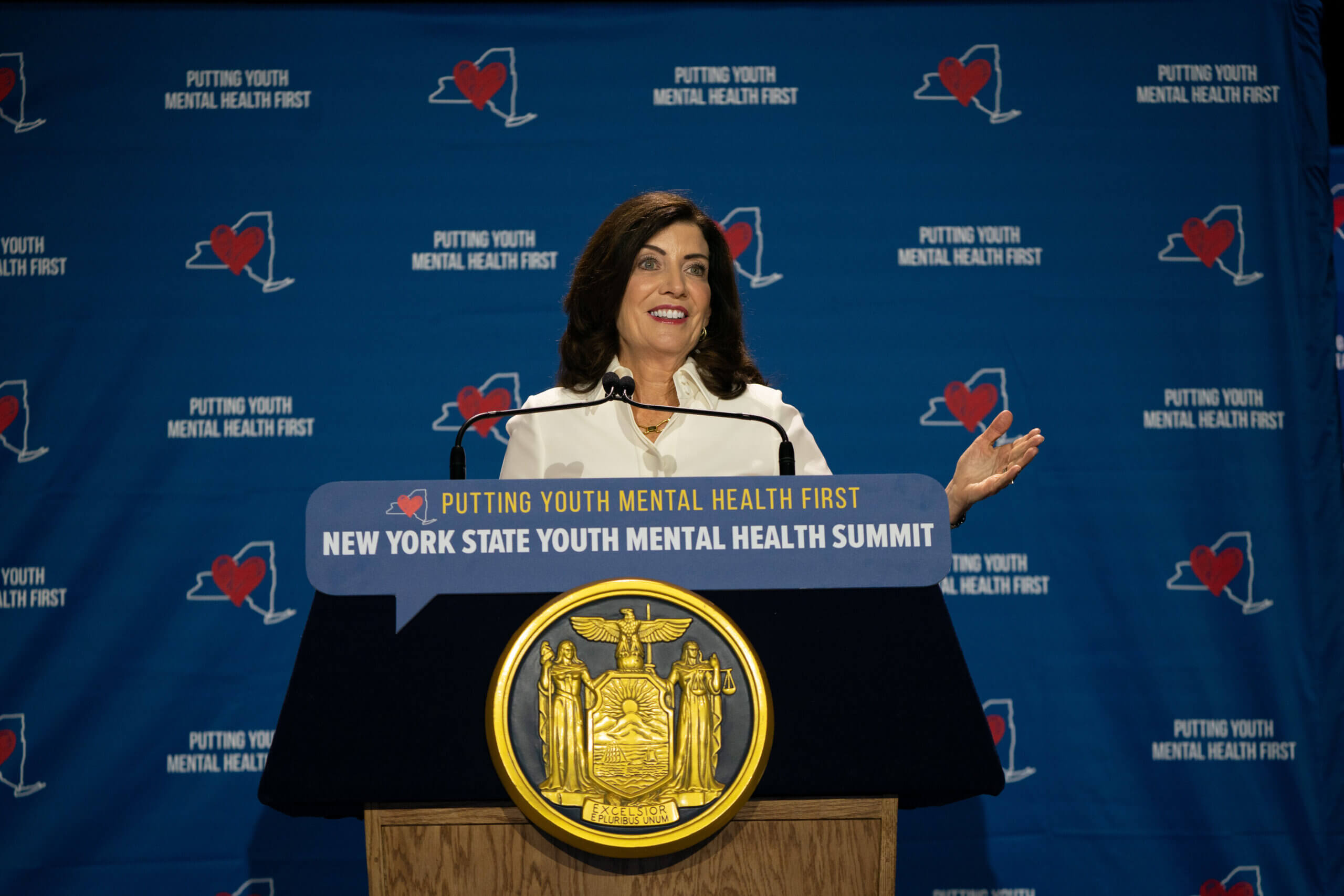
Hochul had announced plans to hold a youth mental health summit in mid-March, and started off with the first listening session with New York City teenagers at the New York State Psychiatric Institute in Washington Heights. The sessions were coordinated by the state’s Office of Mental Health and the Office of Children and Family Service.
Youth participants were asked about the pandemic’s impact to their mental health, the role of social media in their lives, their ideas to improve wellness in schools, and their visions of the ideal school-based mental health programs.
Hochul has since held seven sessions and listened to more than 200 young New Yorkers about their health and wellbeing — which the governor described as “so heart-wrenching” to hear.
“The first session we did in March this will never leave me,” Hochul said. “It was incredible to hear these kids’ stories, how they cope with the isolation they felt so disconnected from the normal support systems.”
The governor learned that students felt there was not enough mental health support in their schools and more than just “one mental health counselor for a school of 700 (students).”
While the intention of social media should be bringing people closer together, Hochul said that the negative aspects of social media manifests itself into lower self-esteem, worthlessness, and sometimes hateful actions. She demanded social media companies take the moral imperative to step up and do more about preventing youth exposure to harmful content.
“The truth is it makes them feel worse about themselves and worse about their friendships and relationships,” Hochul said. “They’re penetrating the minds of our kids at a time when they should be formulating great thoughts thinking about the future.”
Hochul reiterated her commitment to “overhauling the entire mental health system” in New York with a $1 billion investment in the Fiscal Year 2024 budget, including $30 million to expand school-based mental health services and $8.3 million for new and existing school-based health centers. Hochul also proposed that commercial insurance companies be required to cover school-based mental health services starting in 2024.
“I’m saying make sure that every school with this extra money has mental health support within each and every school,” Hochul said. “More mental health counselors in the schools this fall. Again, it just can’t be on the shoulders of our teachers.”
Hochul said there is also an opportunity to invest in programs to address suicide prevention, eating disorders and home-based crisis intervention. Besides adding 1,000 psych beds, the state’s budget includes $12 million for early childhood development and in-home Crisis Intervention treatment for children and teens, $10 million to strengthen suicide prevention programs for high-risk youth, $3.1 million to support treatment for individuals with eating disorders.
“I’m so excited to find all the ways we can expand mental health treatment in our hospitals and bring the beds back online,” Hochul said. “We need more mental health professionals. We’re putting money toward this.”
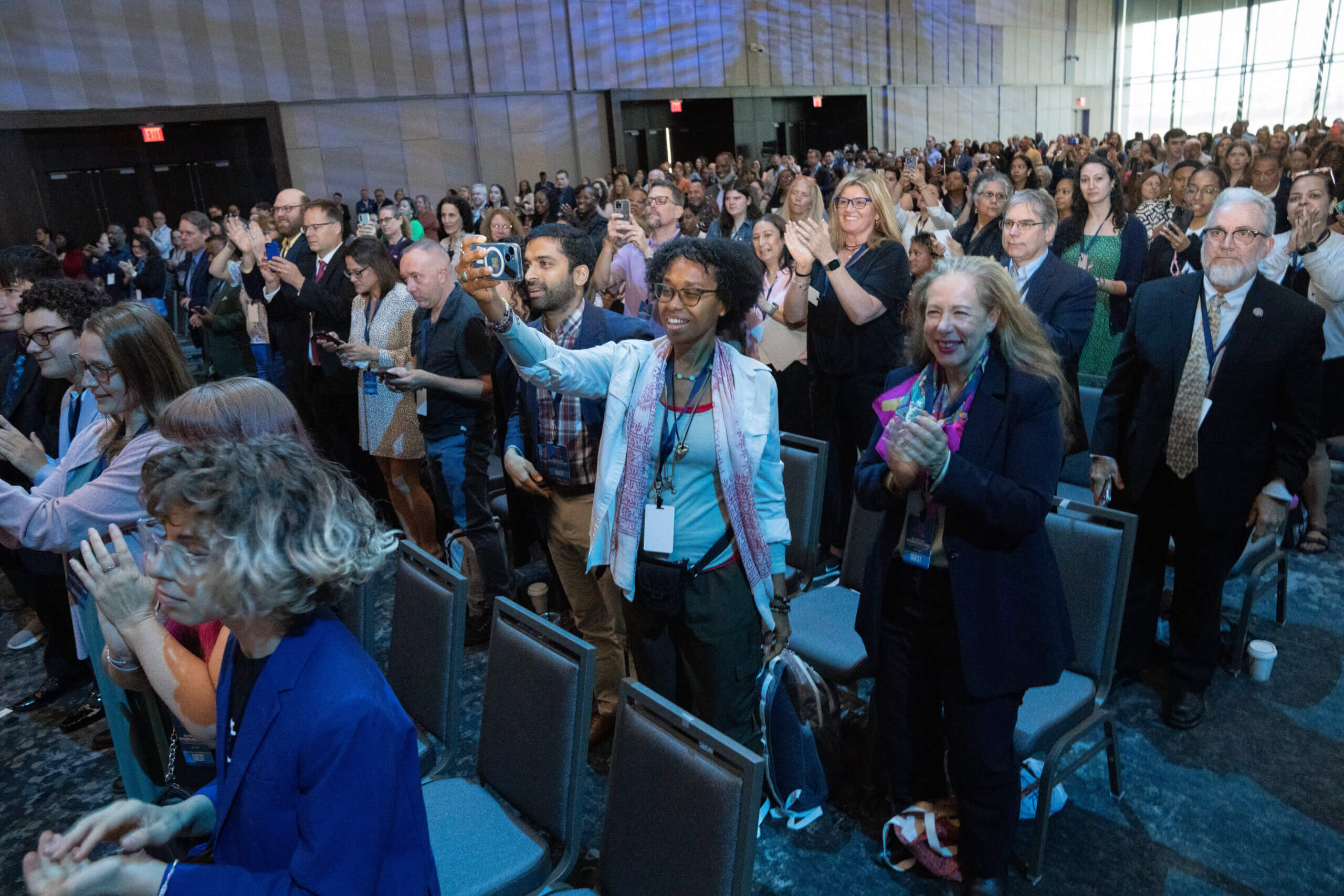
Findings and recommendations from a summary report on the statewide mental health listening tour were also unveiled at the summit, which Hochul called “the beginning of the answer to the problem.”
Key findings include:
-
There is a need for multiple school and community-based approaches to assist in the development of interpersonal skills and friendships
-
Young people highly value confidentiality, and when they perceive that their privacy and confidentiality has been violated, it deters them from developing connections with adults and seeking help
-
Young people prefer mental health interactions with trusted adults who are like them — similar in age and demographics — and reported an overall perception of a lack of empathy and cultural sensitivity in adults
-
Youth want increased accountability for other students, teachers, and school policies
Some of the recommendations that the youth passed on include:
-
Investing in community-based resources for recreation and mental wellness promotion
-
Youth-vetted training on navigating social media
-
Increased mental health resources that are free or low-cost, confidential, respectful, and culturally competent
Dr. Mitch Prinstein, chief science officer at the American Psychological Association, said an ambitious agenda is needed to combat the youth mental health crisis.
“Today represents a major step forward with serious conversations,” Prinstein said.
Bringing people together to talk about mental health “helps remove the stigma our young people grapple with about their mental health challenges by knowing the state is committed to being their ultimate support system,” stated Suzanne Miles-Gustave, the acting commissioner of New York State’s Office of Children and Family Services.
Hochul closed the summit by ensuring her commitment to loop in the New York State Governor’s Youth Council to make its own recommendations and to present the state’s comprehensive plan to address the mental health crisis impacting youth within several months.
“I say that collectively, we come up with a comprehensive youth mental health plan that is actionable,” Hochul said. “We will be unveiling that with your input in the next few months. We’ll explore all the legislative options available to us at the state level and we’ll be creative. On top of our $1 billion of investment in mental health, we’re going to continue to urge other states to follow our lead.”
Read more: Times Square Discounted Ticket Booth Reopening Soon



